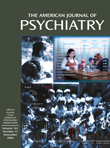Psychiatrists as Expert Witnesses
To the Editor: My congratulations to Renée L. Binder, M.D. (1), for her extensive review and thoughtful synthesis of the liability issues facing forensic expert witnesses in psychiatry and otherwise. Two themes were stimulated by that article.
First, the case quotations from the article seem to capture a more fundamental question than simply holding experts liable or not: the fundamental ambivalence that the law has for using experts at all. As in all hostile-dependent relationships, the ambivalence flows from the fact that the law both needs experts for its proper functioning, yet resents their potential role in “invading the province of the fact finder” (2). With such ambivalence, we cannot expect consistency from the courts on the matter.
The second theme is the concept I have elsewhere styled “the phantoms of the courtroom” (2). This term means that the actual attorneys and judges are treated by the legal system as though they were invisible. That is, when a ruling comes down in the case of Smith v. Jones, the language is, “The court found that Jones failed to plead the proper argument” when what is meant is that a specific person, Judge Leonard Adversarian, decided that Mel Feasance, Jones’s lawyer, failed to do the proper thing. Jones himself would likely not know a proper argument if it bit him. But the judge and the attorney are concealed by “the court” and the named client.
This latter device is especially clear in the discussion dismissing cross-examination as a safeguard against inappropriate testimony (1, p. 1821):
The Louisiana courts have acknowledged…that cross examination “seldom is of adequate value when thrust against the broadside of the litigation expert who can so gracefully stiff-arm his unprepared cross examiner. (emphasis added)
Here the regrettable but somehow expected lack of preparation by the attorney seems somehow to be at the root of the problem of the expert’s testimony. Indeed, experience teaches that many a flaw in court procedure flows from attorney lack of preparation, a problem blamed on the witnesses, the parties, and even the judge—but not the invisible attorney.
In any case, our anxieties about insufficient employment of attorneys may be assuaged by this new territory of potential litigation.
1. Binder RL: Liability for the psychiatrist expert witness. Am J Psychiatry 2002; 159:1819–1825Link, Google Scholar
2. Gutheil TG: The Psychiatrist as Expert Witness. Washington, DC. American Psychiatric Press, 1998Google Scholar



